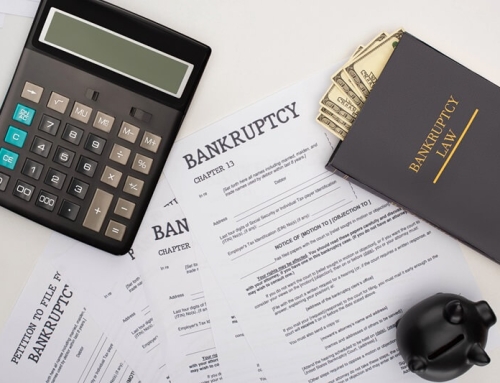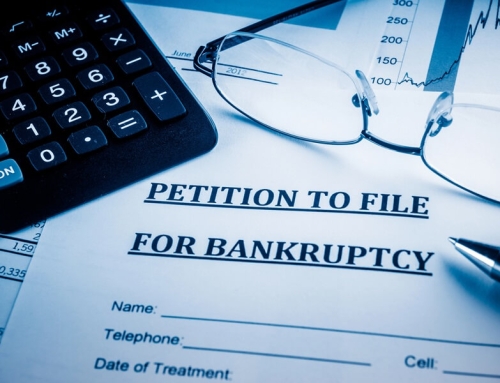Amount Of Cash You Can Keep When Filing Chapter 7 Bankruptcy
In accordance with applicable Chapter 7 bankruptcy laws, it is possible to retain cash as part of your exempt assets. While there may be similarities in Chapter 7 laws across various jurisdictions, Chapter 7 petitions in a specific location, such as Austin, TX, can differ from other states based on state exemptions.
Typically, when you file for Chapter 7 bankruptcy, you are not required to surrender all of your assets, including the cash in your bank account. However, the amount of cash that you can keep will be determined by several factors, such as state exemptions.
In most cases, states do not permit you to protect a substantial amount of cash. Nevertheless, an experienced bankruptcy attorney in Austin, TX, can help you explore legal options to safeguard as many assets as possible during your Chapter 7 bankruptcy case.
Below are some important variables that can influence the parameters dictating how much cash you can retain.

State Exemptions On Cash During Chapter 7 Bankruptcy
When filing for Chapter 7 bankruptcy, you may protect your cash by utilizing bankruptcy exemptions applicable to the state where you reside. Generally, when an individual’s debt is discharged through bankruptcy, their non-exempt property is taken by bankruptcy trustees to pay for unsecured debt.
However, if an asset, property, or a certain amount of cash is listed as exempt under the applicable state bankruptcy exemption, it can be retained. The precise amount of cash that can be kept varies depending on state laws. For example, if a state exempts $3,000 in cash and an individual has $4,000 in cash, they may retain $3,000 and surrender $1,000.
Exempt Cash
In Chapter 7 bankruptcy, there are specific types of cash that may be classified as exempt or non-exempt. Some assets that can easily be converted into cash are also considered cash. Generally, most states have protections in place to prevent certain types of cash from being seized in bankruptcy proceedings. These types of cash may include but are not limited to, exempt retirement or benefit accounts, wages, public assistance, unemployment benefits, personal injury proceeds, and social security proceeds—as long as they are held in a separate bank account.
Non-Exempt Cash
If you sell the non-exempt property before filing for bankruptcy, you risk losing the cash proceeds from the sale. The same applies to selling exempt property, as the cash proceeds from such sales are not protected by exemptions. For example, if you are entitled to a car exemption of $3,000, and you sell your car before filing for bankruptcy, you may lose the cash proceeds from the sale.
Ideally, assets that are exempt from bankruptcy should be left as they are. Selling assets before filing for Chapter 7 bankruptcy may raise suspicions and could lead to your petition being rejected.
Cash & Related Exemptions Applicable To Austin Texas
In Texas, personal property exempt from Chapter 7 bankruptcy can’t exceed $50,000 for single adults and $100,000 for families. Home furnishings, clothing, and equipment are exempt, along with limited jewelry ($12,500 for singles, $25,000 for families), two firearms, sporting equipment, and pets (with restrictions).
Health aids, alimony, support payments, retirement accounts, insurance benefits, and some government benefits are also exempt. Limits apply to certain types of property, such as livestock. For specific details, consult a Texas bankruptcy attorney.
Let A Bankruptcy Attorney From Austin Bankruptcy Lawyers Help
There are additional factors to consider regarding exempt and non-exempt property in a Chapter 7 bankruptcy case. It’s important to understand the property code in relation to personal property, especially if you’re considering converting some of your cash into other assets. To navigate these complexities, seek the guidance of a bankruptcy attorney from Austin Bankruptcy Lawyers. They can help you prepare for bankruptcy and ensure you keep as much of your cash and assets as possible within the confines of the law. They have years of experience in the state of Texas and will cater to your individual needs.
Summary
The amount of cash you can retain during Chapter 7 bankruptcy depends on various factors, including state exemptions. In most cases, states do not permit you to protect a substantial amount of cash, but an experienced bankruptcy attorney can help you explore legal options to safeguard as many assets as possible.
In Texas, personal property exempt from Chapter 7 bankruptcy can’t exceed $50,000 for single adults and $100,000 for families, and certain items like home furnishings, clothing, and equipment can be exempt. It is important to consult with a bankruptcy attorney in your state for specific details.
& Let’s Discuss How We Can Best Help Eliminate Your Specific Financial Struggles!





